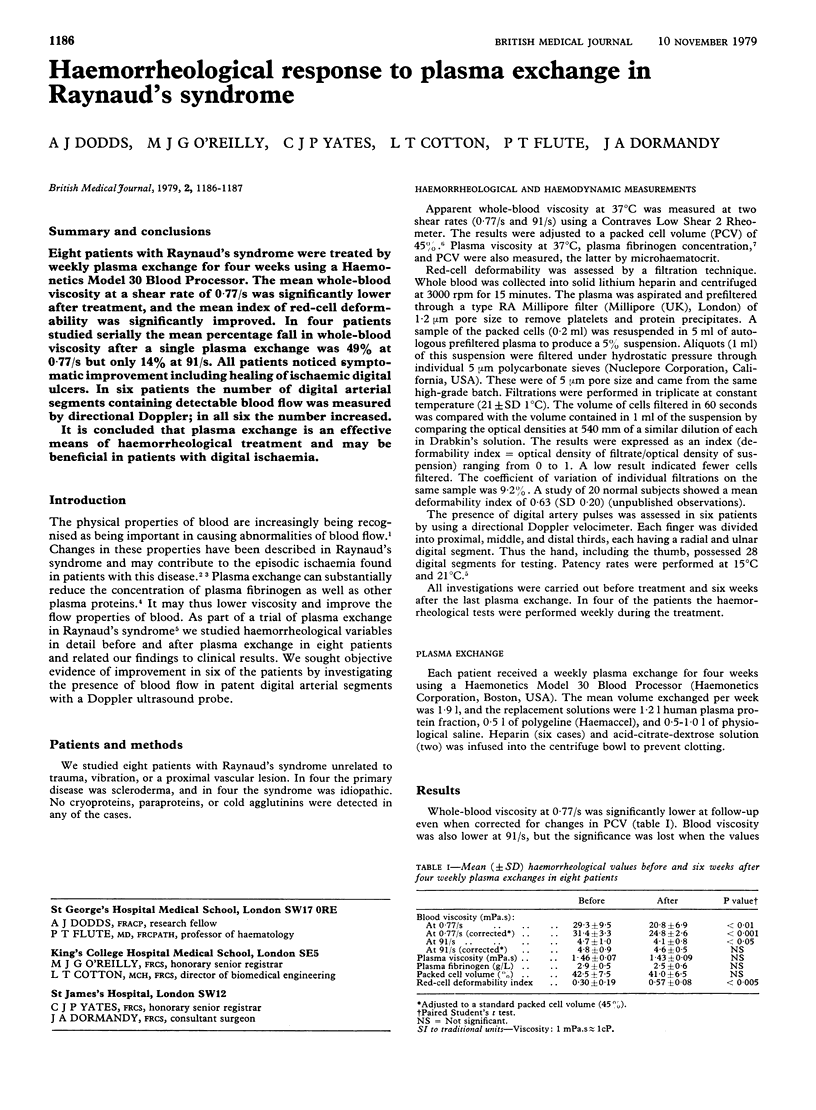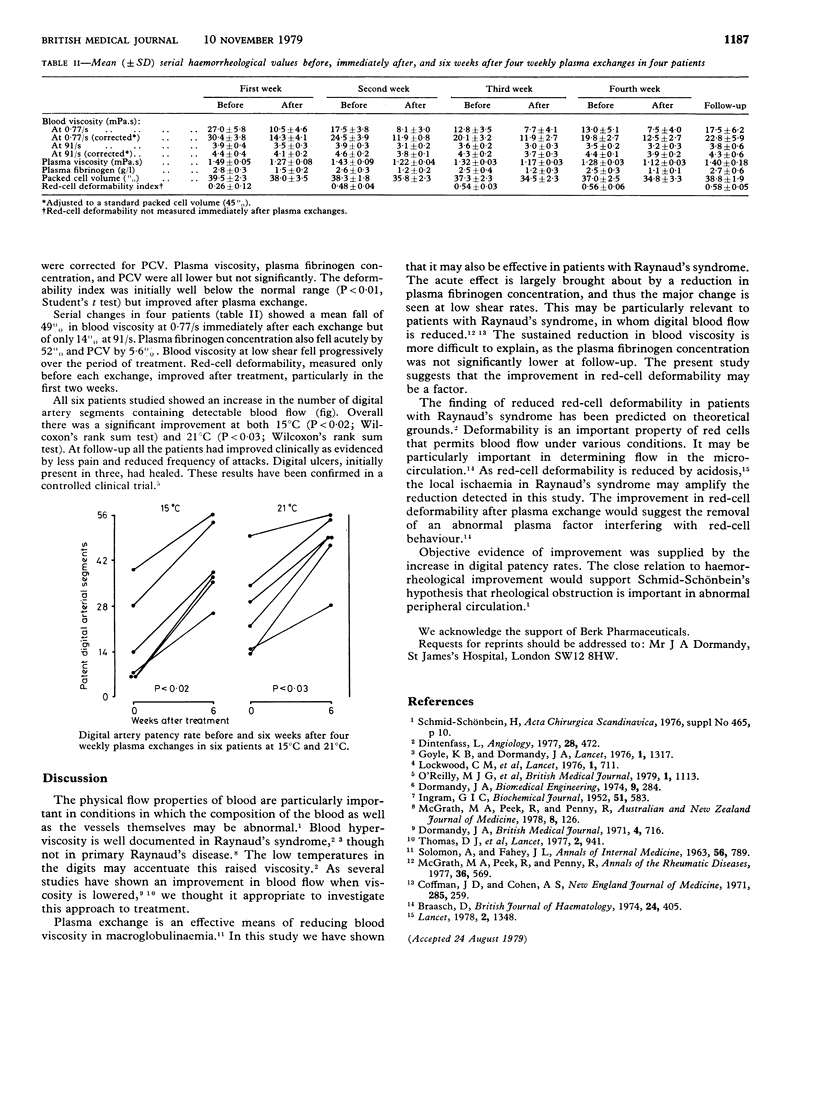Abstract
Eight patients with Raynaud's syndrome were treated by weekly plasma exchange for four weeks using a Haemonetics Model 30 Blood Processor. The mean whole-blood viscosity at a shear rate of 0.77/s was significantly lower after treatment, and the mean index of red-cell deformability was significantly improved. In four patients studied serially the mean percentage fall in whole-blood viscosity after a single plasma exchange was 49% at 0.77/s but only 14% at 91/s. All patients noticed symptomatic improvement including healing of ischaemic digital ulcers. In six patients the number of digital arterial segments containing detectable blood flow was measured by directional Doppler; in all six the number increased. It is concluded that plasma exchange is an effective means of haemorrheological treatment and may be beneficial in patients with digital ischaemia.
Full text
PDF

Selected References
These references are in PubMed. This may not be the complete list of references from this article.
- Braasch D. Red cell elasticity and blood flow. Br J Haematol. 1973 Apr;24(4):405–407. doi: 10.1111/j.1365-2141.1973.tb01666.x. [DOI] [PubMed] [Google Scholar]
- Coffman J. D., Cohen A. S. Total and capillary fingertip blood flow in Raynaud's phenomenon. N Engl J Med. 1971 Jul 29;285(5):259–263. doi: 10.1056/NEJM197107292850505. [DOI] [PubMed] [Google Scholar]
- Dintenfass L. Hemorheological factors in Raynaud's phenomenon. Angiology. 1977 Jul;28(7):472–481. doi: 10.1177/000331977702800705. [DOI] [PubMed] [Google Scholar]
- Dormandy J. A. Influence of blood viscosity on blood flow and the effect of low molecular weight dextran. Br Med J. 1971 Dec 18;4(5789):716–719. doi: 10.1136/bmj.4.5789.716. [DOI] [PMC free article] [PubMed] [Google Scholar]
- Dormandy J. A. Medical and engineering problems of blood viscosity. Biomed Eng. 1974 Jul;9(7):284–passimass. [PubMed] [Google Scholar]
- Goyle K. B., Dormandy J. A. Abnormal blood viscosity in Raynaud's phenomenon. Lancet. 1976 Jun 19;1(7973):1317–1318. doi: 10.1016/s0140-6736(76)92651-9. [DOI] [PubMed] [Google Scholar]
- Lockwood C. M., Rees A. J., Pearson T. A., Evans D. J., Peters D. K., Wilson C. B. Immunosuppression and plasma-exchange in the treatment of Goodpasture's syndrome. Lancet. 1976 Apr 3;1(7962):711–715. doi: 10.1016/s0140-6736(76)93089-0. [DOI] [PubMed] [Google Scholar]
- McGrath M. A., Peek R., Penny R. Blood hyperviscosity with reduced skin blood flow in scleroderma. Ann Rheum Dis. 1977 Dec;36(6):569–574. doi: 10.1136/ard.36.6.569. [DOI] [PMC free article] [PubMed] [Google Scholar]
- McGrath M. A., Peek R., Penny R. Raynaud's disease: reduced hand blood flows with normal blood viscosity. Aust N Z J Med. 1978 Apr;8(2):126–131. doi: 10.1111/j.1445-5994.1978.tb04497.x. [DOI] [PubMed] [Google Scholar]
- Thomas D. J., Marshall J., Russell R. W., Wetherley-Mein G., du Boulay G. H., Pearson T. C., Symon L., Zilkha E. Effect of haematocrit on cerebral blood-flow in man. Lancet. 1977 Nov 5;2(8045):941–943. doi: 10.1016/s0140-6736(77)90885-6. [DOI] [PubMed] [Google Scholar]


